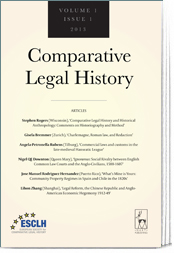- A
- A
- A
- ABC
- ABC
- ABC
- А
- А
- А
- А
- А
- HSE Campus in St. Petersburg
- School of Arts and Humanities
- Department of History
- News
- Law between Revolution and Tradition: Russian and Finnish Revolutionary Legal Acts, 1917–18
-
Department
-
Educational programmes
Address:
190068 Saint Petersburg
123 Griboedov channel, Room 123
Phone:+7 (812)786-92-49
Postal address:
190068 Saint Petersburg
123 Griboedov channel
The Department of History was created in 2012. The overarching goal of the department is systematic development of the field of global, comparative, and transnational history as a potent tool of overcoming the limitations of national history canon, fostering interdisciplinary dialogue in the field of social sciences and humanities, and brining new public relevance to historical knowledge. The department mission includes the development of new type of historical undergraduate and graduate education in Russia and pioneering new research fields in Russian historiography in dialogue with the global historical profession.
De Gruyter Oldenbourg, 2025.
In press
Nedopekina A.
Laboratorium: Russian Review of Social Research. 2024. Vol. 16. No. 1. P. 130-134.
In bk.: Revolutionary Biographies in the 19th and 20th Centuries: Imperial – Inter/national – Decolonial. Göttingen: V&R Unipress, 2024. P. 17-34.
Khvalkov E., Levin F., Кузнецова А. Д.
Working Papers of Humanities. WP. Издательский дом НИУ ВШЭ, 2021
Address:
190068 Saint Petersburg
123 Griboedov channel, Room 123
Phone:+7 (812)786-92-49
Postal address:
190068 Saint Petersburg
123 Griboedov channel

Law between Revolution and Tradition: Russian and Finnish Revolutionary Legal Acts, 1917–18
 Abstract:
Abstract: This article compares the legislative practices of two socialist revolutions in Russia (the Bolshevik revolution) and Finland in late 1917 and in 1918. Notwithstanding the considerable differences in the social, political and economic conditions in Finland and Russia, the revolutionaries in both countries had similar legislative strategies. The revolutionary legislative policies had the same ends: to secure the success of the revolutions, and, even- tually, to build a new and better society. This article seeks to demonstrate the history of revolutionary law-making as a juncture of two main tendencies: the emergence of new ‘revolutionary’ features of legislative politics and the preservation of pre-revolutionary law. We argue that the pre-revolutionary practices of law-making on which the revolu- tionaries relied shaped their strategies and, to some extent, the criteria by which they judged the ultimate success of their revolutions. We argue that the performative effect of revolutionary slogans should be perceived, at least in part, as a continuity of pre-revo- lutionary legal and administrative practices. Our comparative analysis of revolutionary law-making provides a more complex understanding of the role of revolutions in modern state empowerment.
-
https://elearning.hse.ru/en/mooc/
Massive Open Online Courses
-
https://www.hse.ru/en/visual/
HSE Site for the Visually Impaired
-
http://5top100.com/
Russian Academic Excellence Project 5-100
- © HSE University 1993–2025 Contacts Copyright Privacy Policy Site Map
- Edit

